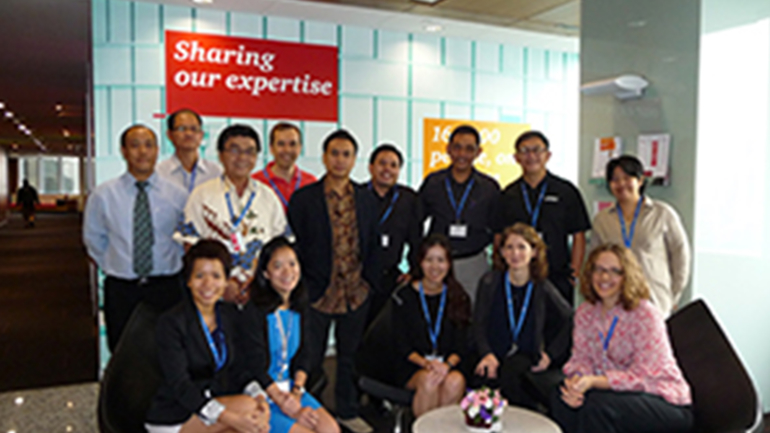Geneva, 24 February 2012: To help build this capacity into company infrastructure, the World Business Council for Sustainable Development (WBCSD) launched its Business Ecosystems Training (BET) program today at an event co-organized with the Geneva Environment Network (GEN) and the International Union for Conservation of Nature (IUCN).
BET is designed toimprove the understanding of managers and employees across business functions about their company’s direct and indirect impact and dependence on ecosystems and ecosystem services. Designed specifically for business, it incorporates WBCSD methodologies, materials and tools that have been developed over the course of 10 years, as well as material from other institutions. The development of the BET course was supported by member company KPMG and a network of global companies, environmental NGOs, UN and academic institutions and environmental institutions including IUCN.
“Effectively managing ecosystems related risks and opportunities can make companies more competitive, resilient to shocks and agile in a fast-changing world.” said James Griffiths, Managing Director, WBCSD Ecosystems. “BET will help equip companies with the skills to fully grasp their ecosystems impacts and dependencies and help build their capacity to respond effectively - anticipating changing expectations from customers, investors and regulators and market opportunities.”
The BET course aims to increase knowledge and understanding about ecosystems by business. At today’s launch event, which was held at International Environment House in Geneva, organizations involved in developing BET took part in a panel discussing the implementation of ecosystems training.
“Biodiversity and ecosystems are increasingly being recognized as critical and material business issues. The course explores the drivers, regulatory pressures, frameworks and most significantly, the business case for a stronger focus on ecosystem measurement and management. It also considers the use of valuation, the mitigation hierarchy, the issues and mechanisms for offsetting, and the role of sustainability reporting.” said Dr. Stephanie Hime, Lead Specialist, Biodiversity and Ecosystem Services in KPMG’s Climate Change & Sustainability practice.
“The new paradigms of a ‘green economy’ and ‘green growth’, which are rapidly becoming central to the way businesses operate, require business leaders with new sets of skills,” said IUCN Director General Julia Marton-Lefèvre. “With initiatives such as the Business Ecosystems Training, we can expect to see business leaders with an increased understanding of the need to sustain ecological life support systems for healthy people and a healthy planet.”
BET is structured in four modules that gradually drill down into topics depending on the learner’s needs. It covers a wide range of themes, from the basics about biodiversity and ecosystems, to more in-depth tools such as the Corporate Ecosystem Services Review (ESR) or the Guide to Corporate Ecosystem Valuation (CEV). BET is a linear training program but modules are developed in such a way to allow them to be used individually. They can also be customized by companies for incorporation into their own education and training programs. Although designed for large global companies, BET’s modular structure, facilitator notes, implementation guide and use of case studies, also makes it fully relevant to small-medium sized enterprises.
“BET is effective education material for company employees. It informs on the links between impacts to, and dependencies on, ecosystems and business activity,” said Yoichi Takahashi, Deputy General Manager, Environmental Strategy Office, Hitachi, Ltd. “It allows the participants to think further in innovative ways so they can solve ecosystem conservation and sustainable use issues using new insights.” Member company Hitachi supported development by pilot testing BET modules and concepts.








